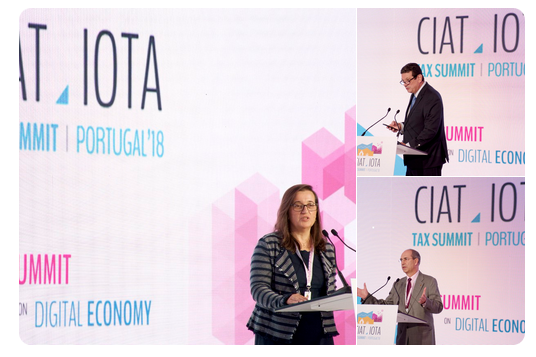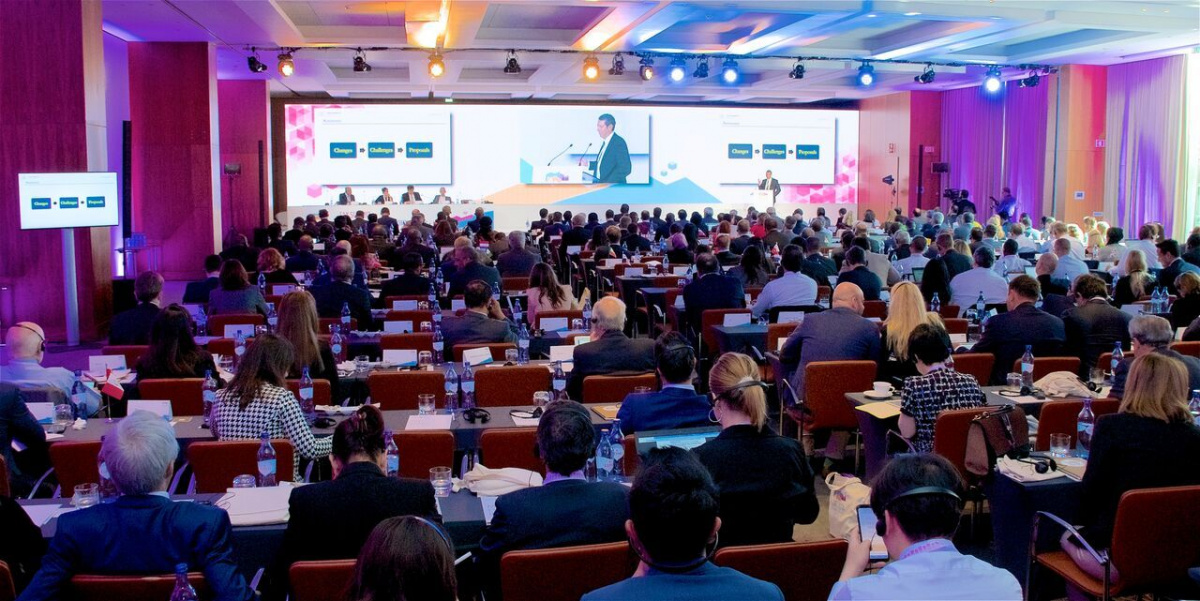 More than 250 participants from Europe, the Americas, Africa and Asia meet today in Lisbon in our 3 day joint summit organised with CIAT and the Portuguese Tax and Customs Authority.
More than 250 participants from Europe, the Americas, Africa and Asia meet today in Lisbon in our 3 day joint summit organised with CIAT and the Portuguese Tax and Customs Authority.
The inaugural session started with speeches of the heads of the organising institutions; Helena Borges, Director General of the Portuguese Tax and Customs Authority, Marcio Verdi, Executive Secretary of CIAT and Miguel Silva Pinto, Executive Secretary of IOTA. The heads of CIAT and IOTA expressed that this summit is a realization of an “old dream” of getting together the two regional tax organisations for a joint meeting and expressed thanks to Portugal for hosting this historical event.
Photo: Helena Borges, Marcio Verdi, Miguel Silva Pinto
Participants were welcomed by Mario Centeno, Minister of Finance of Portugal, who delivered the opening speech.
The first day included four panel discussions on the fair and effective taxation across the digital economy.
Keynote speeches were delivered by Maria Teresa Fábregas from DG Taxud on the vision of the European Commission on measuring to increase fair taxation and by Grace Perez-Navarro from Centre for Tax Policy and Administration, OECD on the tax challenges arising from digitization.
 How to tax digital businesses? A session focused on this issue, moderated by Juan Toro from the International Monetary Fund. The experience and initiatives on how to tax digital business such as online video services, sharing economy, etc. were presented from India, France, Sweden and Brasil.
How to tax digital businesses? A session focused on this issue, moderated by Juan Toro from the International Monetary Fund. The experience and initiatives on how to tax digital business such as online video services, sharing economy, etc. were presented from India, France, Sweden and Brasil.
Tax transparency in the digital era was discussed in the next session. FATCA challenges, use of CbC reporting data for risk management, digitalizing AEOI data collection process to implement CRS and combining tools as a possible way towards the effective use of the information exchanged was explained by representatives from Panama, Germany, Switzerland and Italy.
The impact of digital taxation on three key areas of tax administration (compliance, enforcement and future deveopments) was discussed in a round table where the Director Generals of the Spanish, Austrian and Swedish tax administrations spoke about their views and expectations.
How blockchain technology will be used for simplifying and modernizing tax compliance and what is the impact of cryptocurrencies on taxation was explored in the session moderated by IOTA’s former President, Frantisek Imrecze. Representatives from Vienna University, Startup Nation and Guardia di Finanza of Italy held an informative discussion in the last session of the day.
